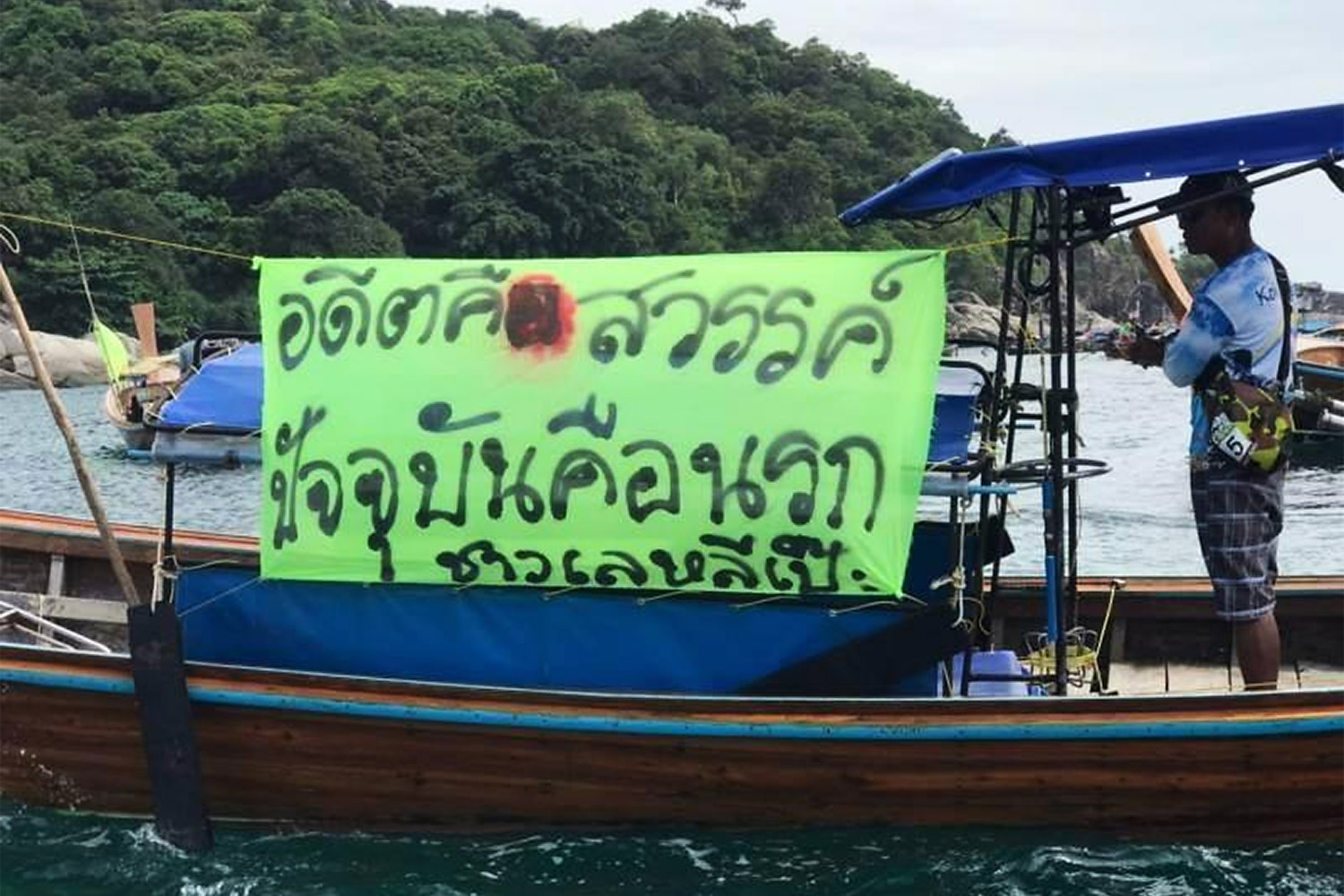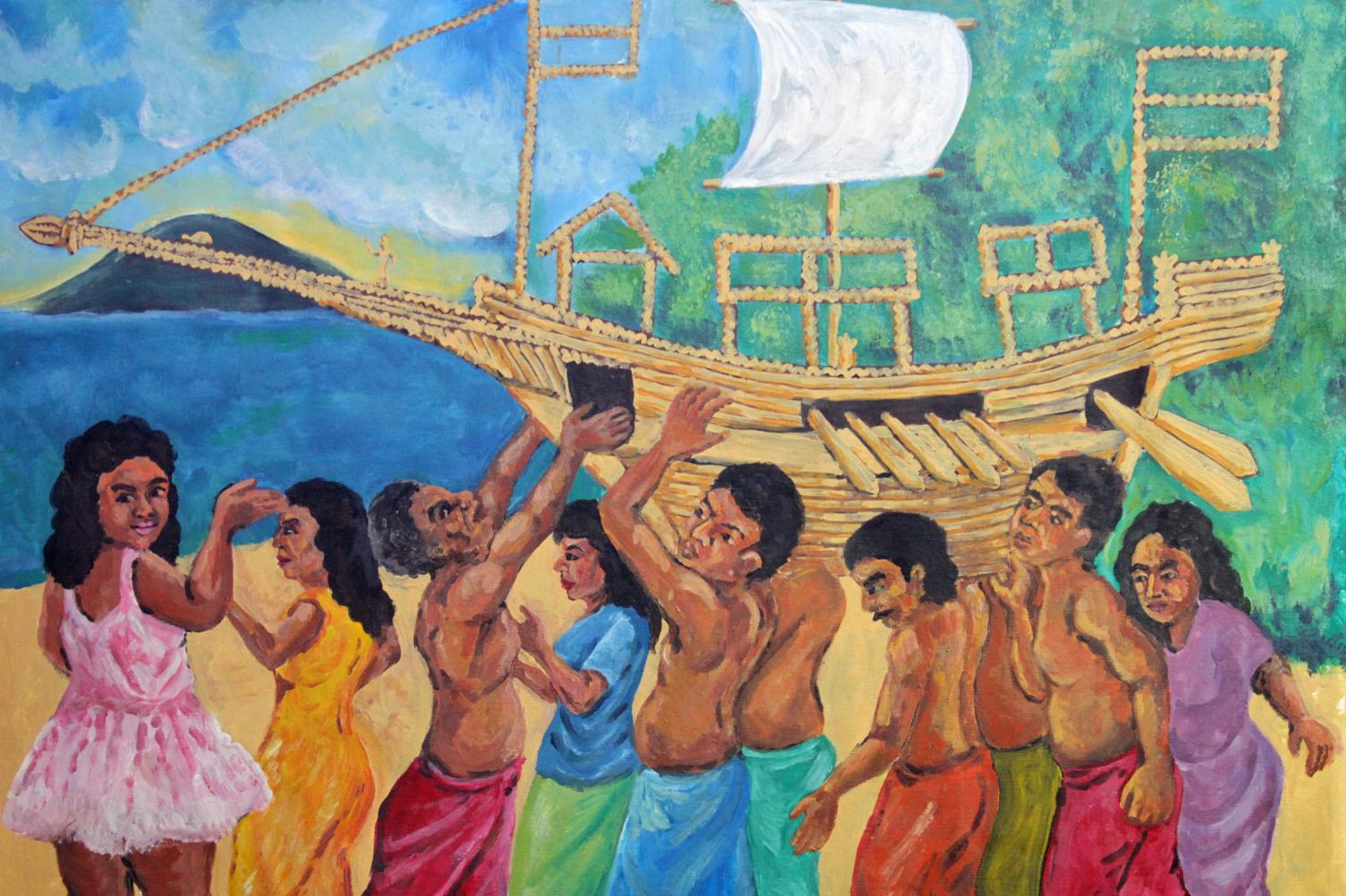
While Satun's Lipe island in the Andaman sea has gained recognition as a tourist paradise, its beauty is the cause of deep trouble for Urak Lawoi -- an indigenous group that has been living on this pristine island for over a century.
Because of their lack of literacy and above all legal knowledge, they are being evicted by some rich investors seeking to occupy their beach-front land on this tourist island.
In the latest news report, one resort operator has even blocked a road with a makeshift fence, the only way for local villagers to access to the sea.
Children have to climb and sneak over the fence to reach their school. And the sick cannot pass by the fence to reach the hospital. That really is a "hell on Earth" situation.
The blatant land grab took place around two decades ago amid a tourism boom on this tiny island, famous for its silvery beaches, turquoise blue seas and lush coral reefs.
Urak Lawoi is one of three sea gypsy tribes in the South Andaman Sea. The other two are the Moken and Moklen, living in the upper part of the Andaman.

Compared to the other two tribes, the Urak Lawoi are relatively secure in terms of community settlement. The Moken and Moklen are still facing nationality problems and settlement difficulties as a result of the tsunami that wrecked their region a decade ago.
According to local community history, the first group of sea people led by Kiri Harntale settled down in this area in 1897 at the time when Thailand and Malaysia demarcated the border.
Migrating from Aceh province of Indonesia over a century ago, the Urak Lawoi people populated Phuket, Krabi and Satun provinces, or went to islands like Koh Lanta in Krabi province and Koh Lipe.
More Urak Lawoi sea people who were evicted from Tarutao island after the area was designated a national park joined them in 1974.
Kiri's decision to choose Thai citizenship was part of the reason this island was declared a part of Thailand.
Subsequently, several families, mostly fisherfolk who could barely read or write, trusted the son-in-law of village leader Kiri as he voluntarily kickstarted the process to upgrade their land ownership deeds into Nor Sor 3 Kor.
They had no idea they would be cheated, but kept waiting for the land deeds. Only after the leader's son-in-law was murdered did they learn that the whole process was a hoax. But by then, it was too late. Rich people from outside came with land documents and took over their beach-front land, developing it into resorts. This was how the sea people were kicked out.
Some families of Urak Lawoi in Koh Lipe started businesses by opening resorts and restaurants. But the influx of tourist-related investment has been hard for them to handle. Competition from investors with fat wallets forced them to give up their businesses and sub-lease or sell their land to outsiders.
As Lipe became a world-famous destination, no sea people could keep their beach-front land. Almost half of the community, or 125 families, became illegal occupants of their own land. The tourism boom pushed them out of their homes faster. They could only watch on silently as strangers made use of their land. High demand pushed up land prices. Even the cemetery where their ancestors were buried was taken over by resorts.
After a series of complaints, and rallies, the National Human Rights Commission (NHRC) and a panel under the PM's office tasked with overseeing problems related to the land rights of minority groups set up a probe and found irregularities in the land title deeds process. They proposed to the authorities that the land documents issued via shady processes be revoked.
There was not much progress.
The latest blockade of the community road was the last straw. The villagers responded with a rally, demanding the road be opened.
Now that land conflicts have turned into confrontations, state authorities are turning a blind eye to their plight. The state mechanism has become crippled, despite Lipe continuing to boom. The government promotes tourism without looking deeper into what is happening in this tourist paradise.
These problems have dragged on for far too long. All tourists must be informed of the injustices the sea people have faced.
Needless to say, there must be unscrupulous officers involved in the unlawful land deeds. Isn't it time they are held accountable?
A team from the PM's Office is scheduled to visit the island this week and sort out these long-standing problems.
Yesterday, the NHRC pressured the government by sending it an official letter asking responsible agencies to resolve the land conflicts between local Urak Lawoi residents and outside tourism businesses.
Let's hope the visit is not just another flash-in-the-pan reaction used to douse all the bad press that can dent the fun-filled ambience of this increasingly famous island in the Andaman Sea.
Let us pray that all the flaws will be straightened out and the sea people get the justice they deserve.







